Safety
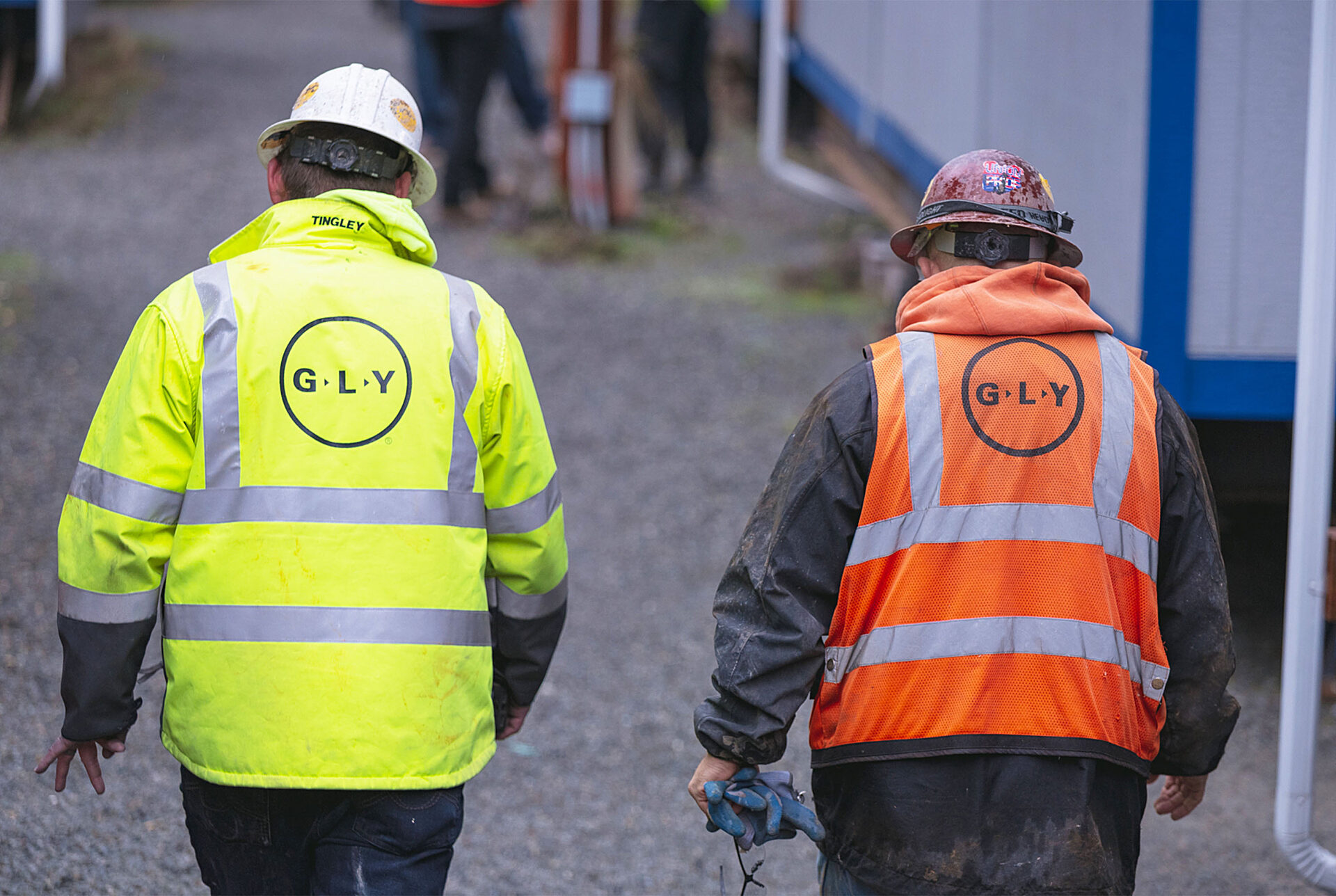
Insights 05.25.2022
What is Mental Health First Aid?
Human Resources Director Jane Mounsey discusses what it means to be a Mental Health First Aider.
Read More
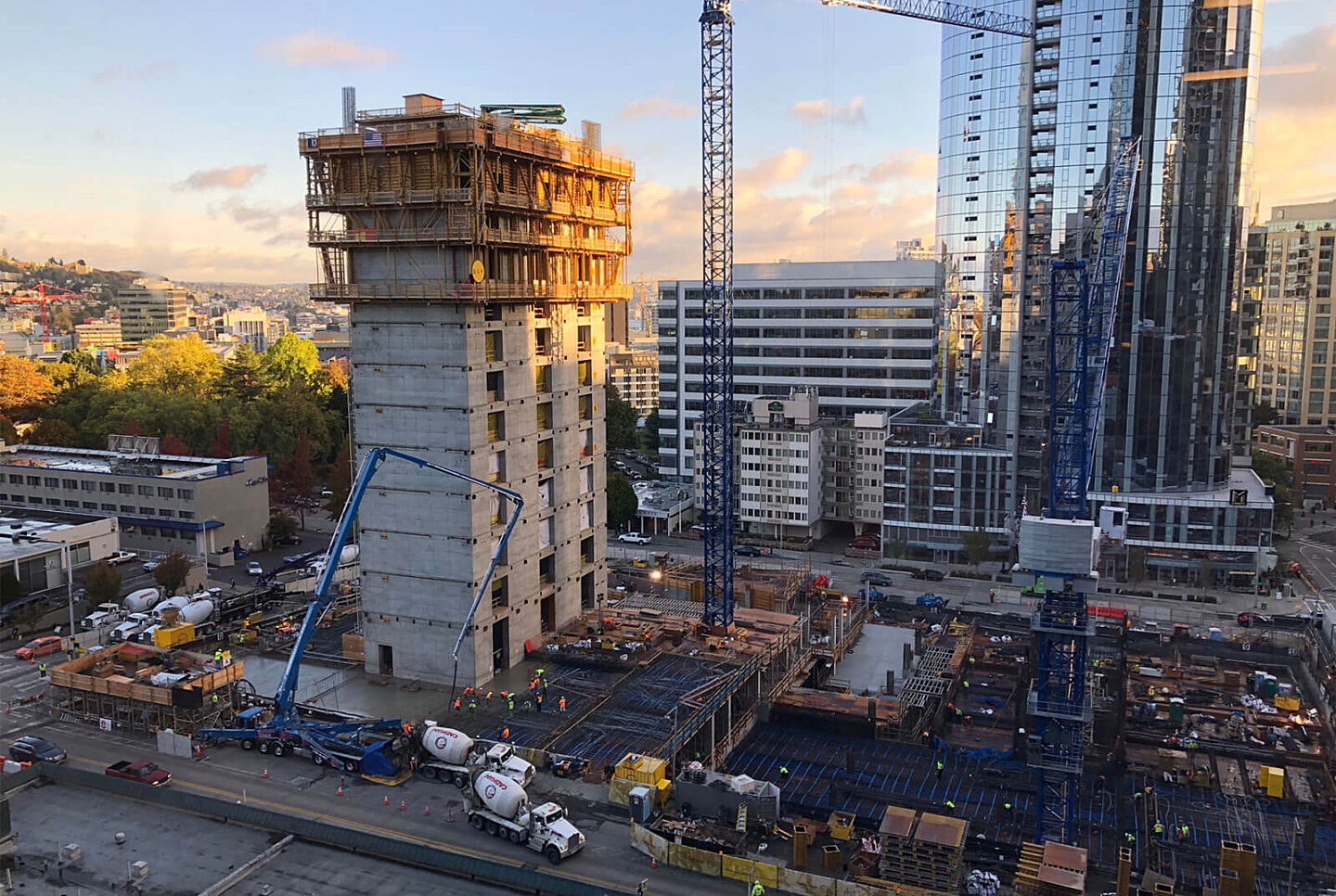
Risk is inherent in every construction project, especially on complex highrise buildings. For decades, constructing the core of a new building meant working on small, tight platforms and waiting between floors as a crane lifted the formwork up. But Project Executive Grant Willman knew there was a better, safer way.
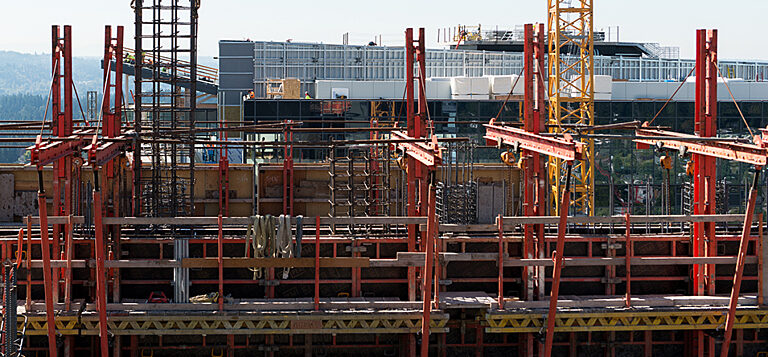
From 2014 – 2017, while building the award-winning Lincoln Square South, a 32-story mixed-use development in downtown Bellevue, Washington, Grant and Senior Superintendent Todd Parker developed an idea for the future of formwork. Next, they formed a small, ad hoc team of internal colleagues to help develop the concept further. By seeding lessons learned from previous projects into the design, they hoped to enhance worker safety and productivity.
As Lincoln Square South wrapped up in early 2017, Grant and Todd saw an opportunity to bring their formwork vision to life on a new project: Block 21, located in downtown Seattle’s exploding Denny Triangle neighborhood. First, they prepared a detailed request for proposal [RFP], and invited a number of formwork companies to respond. Most answered the RFP with ideas to adapt their existing framework to meet the criteria, but EFCO was the standout. Their response carefully addressed the design elements, and proposed a “Power Tower 100” [PT-100], which is a high-capacity, self-climbing formwork design. This got Grant’s and Todd’s attention.
Following a trip to EFCO’s Concrete Construction & Forming Institute in Des Moines, Iowa, and an active construction project in Los Angeles, GLY gave EFCO the green light. Appropriate time was then set aside for study and planning, which allowed the GLY and EFCO team to iterate on the design and validate concepts. Nearly one year after receiving EFCO’s initial proposal, pre-built wall forms arrived on the jobsite.
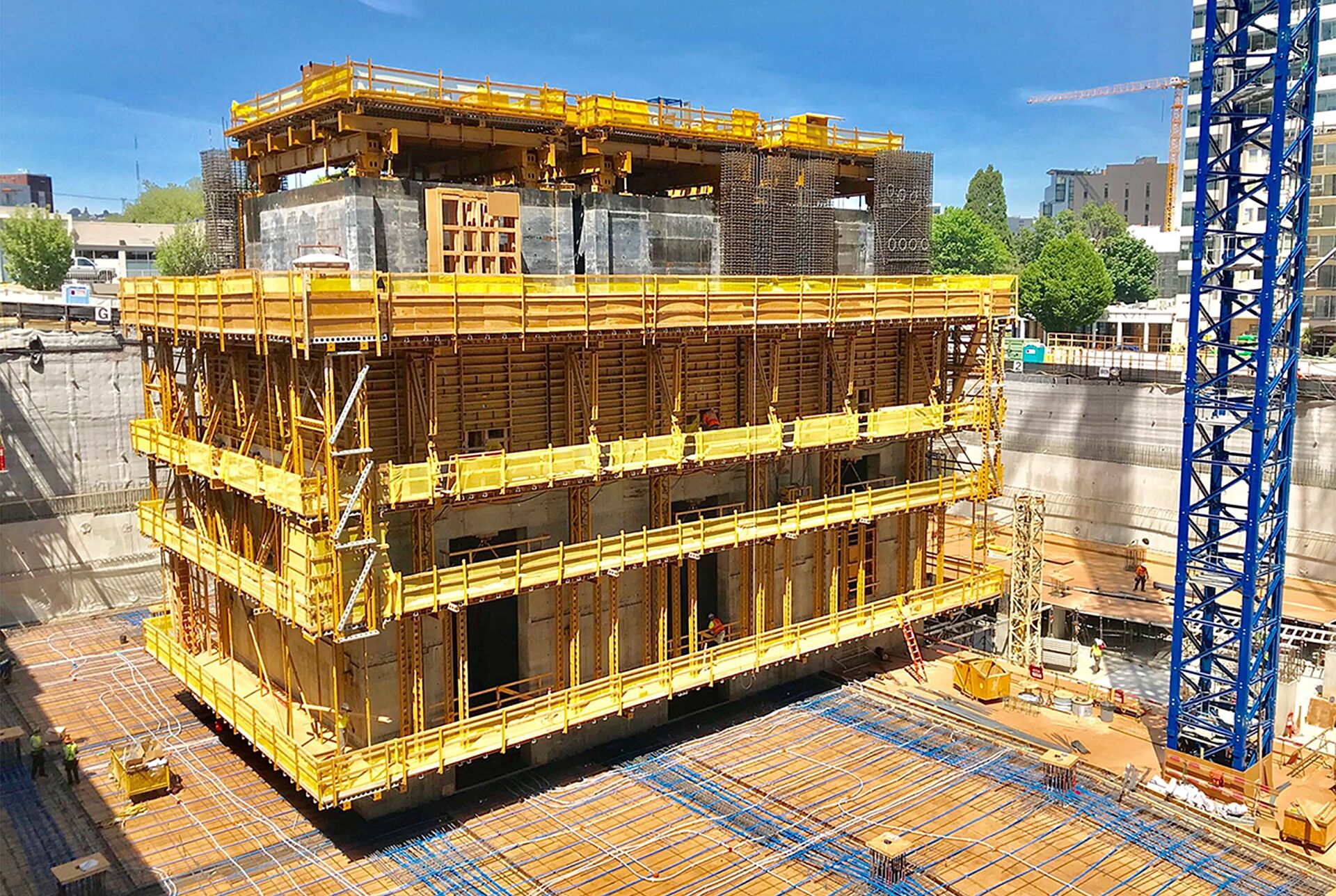
The EFCO PT-100 installed at Block 21, Seattle.
The PT-100’s benefits were immediately evident, validating the investment of the additional planning time to make the dream a reality. One of the most visible differences between standard formwork and the PT-100 are its dimensions. Rather than the typical 2- or 3-foot-wide deck, it features an 8-foot-wide working deck—a chief advantage that provides substantial increase in freedom of movement for both workers and materials. “I really like working with the EFCO system,” reports Kevin Welde, General Foreman for Harris Rebar. “There is nothing in the way.” Iron workers can stage materials on the deck AND prefabricate the reinforcing steel more efficiently, making the work safer and more productive than ever before.
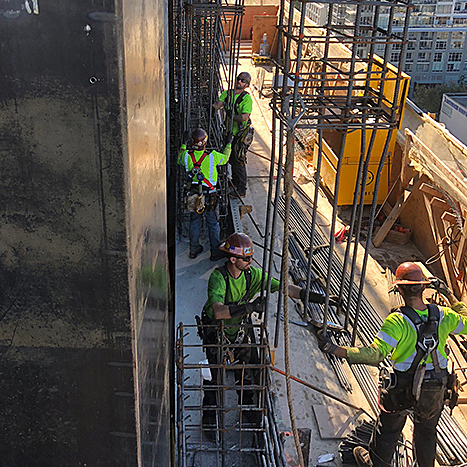
Look closely and you’ll see another key contrast. The self-climbing PT-100 formwork features a two-story lift of reinforcing steel, as compared to more traditional one-story. Not only does this reduce the transition time between completed floors, it essentially eliminates half of the lap splices and crane picks for boundary elements. In addition, it has a separate system for forming elevator lobbies trailing below. Combine all that with a man-lift stop that provides direct access to the climbing system; ample room for crew accommodations; protection from the elements; and no more wasted time traveling up and down an ever-rising tower—and you might say highrise building construction finally met its match.
“The safety aspects of working with the EFCO forming system are awesome for our crews,” says Doug Campbell of Harris Rebar. “The plus-one deck, being 8-feet-wide, allows us to stage our rebar right where it’s most efficient. The extra space also allows for personnel movement without the trip hazards usually associated with these activities on standard width platforms.”
He added that GLY provided a superior forming system, which builds the crew’s confidence in the formwork. “This EFCO system allows us to work safely and efficiently. It doesn’t get any better than that!”
A safe workplace is fundamental to GLY’s mission because we want everyone to return home safely to family and friends after a hard day at work. Thanks to Grant’s and Todd’s creative solution, the collaborative teamwork between GLY and EFCO, and General Foremen Al Hansen and Terry Biederstedt—the powerhouse pair who make the system run smoothly on a daily basis—the process of building a core and delivering an elevator shaft is safer and faster. Our hope? That the system benefits other firms and projects in the very near future.